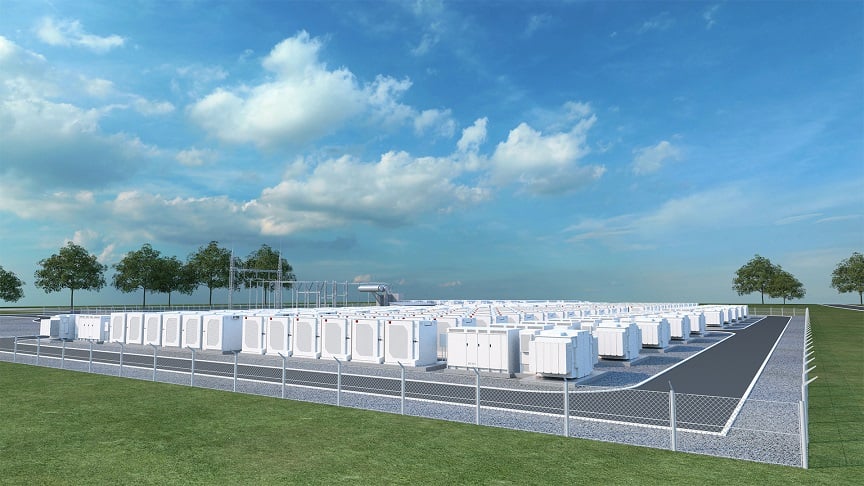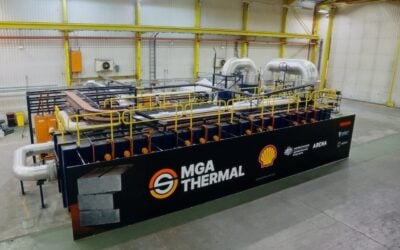
The government of the Australian Capital Territory (ACT) has partnered with developer Eku Energy to deliver its flagship Big Canberra Battery project.
The government announced this morning that Eku Energy will develop, build and operate the battery energy storage system (BESS), which at 250MW/500MWh would be one of the largest of its kind in the country.
The formation of the partnership was described by ACT chief minister and minister for climate action Andrew Barr as a “significant step in the delivery of the Big Canberra Battery ecosystem”.
First announced as part of the state’s 2020-2021 budget with AU$100 million (US$67 million) in funding pledged towards it, the government ran a procurement process for the grid-connected BESS which began in mid-2022.
Try Premium for just $1
- Full premium access for the first month at only $1
- Converts to an annual rate after 30 days unless cancelled
- Cancel anytime during the trial period
Premium Benefits
- Expert industry analysis and interviews
- Digital access to PV Tech Power journal
- Exclusive event discounts
Or get the full Premium subscription right away
Or continue reading this article for free
Ahead of opening that solicitation, the government, together with the Australian National University’s Battery Storage and Grid Integration Program (BSGIP) and input from industry stakeholders, held a co-design workshop. Some of the themes that emerged included a recognition that while transmission-connected BESS can be a valuable asset, finding financing remains challenging.
Winning bidder Eku Energy is an energy storage development platform that was launched through the Macquarie Asset Management-owned Green Investment Group (GIG) in late 2022, taking over GIG’s development pipeline.
Government, developer to share NEM revenues
The expected total cost of the battery project was cited today as between AU$300 million and AU$400 million.
The BESS will store energy generated during times of surplus renewable generation and off-peak times, helping to manage Canberra’s peak load by injecting power back to the grid when it is needed.
It will participate in the National Electricity Market (NEM) and under the terms of the government’s agreement with the developer, revenues it earns from opportunities including the NEM’s frequency control ancillary services (FCAS) markets will be shared between the pair.
In addition to the revenue-sharing, Eku Energy will receive fixed payments on a quarterly basis from the ACT for 15 years, while the BESS will also provide system stability and security services, helping to back up electricity supply in the region. Financial terms of the revenue share and fixed payments were not mentioned in Australian Capital Territory government releases.
“When I first announced the Big Canberra Battery project we had three objectives in mind; grow jobs in our renewable energy sector, create a meaningful revenue stream for the Territory and improve energy security for Canberrans – this contract delivers on all three of those objectives,” chief minister Andrew Barr said.
“As a combined network, this battery ecosystem can address network constraints, enable more Canberrans to reap solar benefits and present the opportunity for the Territory to reduce costs and generate revenue.”
The half-gigawatt-hour BESS is one component of a three-stage plan the Canberra Big Battery project comprises – the further two steps will be the deployment of distributed energy storage at government buildings and the installation of community-level ‘neighbourhood’ battery systems for residential areas.
The biggest large-scale battery asset currently under construction in the Australian Capital Territory is the 100MW/200MWh Capital Battery. Neoen, the developer of that project, reached financial close on it in October 2022, due in part to a AU$35.5 million funding commitment from Australia’s national Clean Energy Finance Corporation.
Neoen’s Capital Battery is scheduled to go into operation in the first half of this year. The 250MW large-scale portion of the Canberra Big Battery project meanwhile is expected to begin construction in late 2024 and enter commercial operation during the following year.
It’s the second big Australian BESS project announcement in the past few weeks for Eku Energy covered by Energy-Storage.news: Macquarie’s GIG and Shell Energy said in late March that they are working together on a 200MW/400MWh project in the state of Victoria, with GIG’s equity stake in the project set to transfer to the developer.
Energy-Storage.news’ publisher Solar Media will host the 1st Energy Storage Summit Asia, 11-12 July 2023 in Singapore. The event will help give clarity on this nascent, yet quickly growing market, bringing together a community of credible independent generators, policymakers, banks, funds, off-takers and technology providers. For more information, go to the website.





